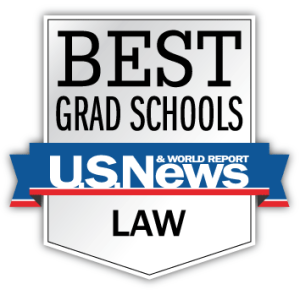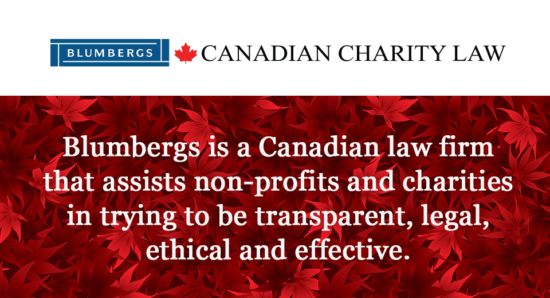 It’s not easy defending new U.S. News & World Report law school rankings. Harvard tied with Duke, Penn, and UVA? Columbia and NYU teetering on the bottom of the top 10? Schools with 20 place swings? The credibility of the rankings have gotten so bad that there are people in this world willing to suggest out loud that ASS Law should be ranked higher.
It’s not easy defending new U.S. News & World Report law school rankings. Harvard tied with Duke, Penn, and UVA? Columbia and NYU teetering on the bottom of the top 10? Schools with 20 place swings? The credibility of the rankings have gotten so bad that there are people in this world willing to suggest out loud that ASS Law should be ranked higher.
Probably a good reason to add the Above the Law rankings to your evaluation matrix. (This year’s edition will be out in a couple months.)
Maryland Law’s Donald Tobin wrote an op-ed for TaxProf Blog laying out his pros and cons of the new USNWR methodology. Some of his points are pretty good (“using two-year averages for bar passage and employment data” to cut back on volatility), some less so (suggesting that outcome measurements should be downplayed), but all in all it’s a thoughtful critique that concludes by re-weighting the raw numbers to generate a ranking in a way that makes a lot more sense and is worth checking out.
But one snippet of the piece jumped out:
One last point, U.S. News appears to be throwing a little bit of a temper tantrum.
Intriguing choice of words. Because when I think “temper tantrum,” I think of a bunch of elite schools publicly withdrawing from the rankings to sow chaos and directly undermine the publication’s credibility.
They indicate in the methodology that they are not counting reputational submissions by schools that have decided not to provide data to U.S. News. You might say that this is fair game. If you don’t provide us with the information we want, you don’t get to vote.
In fact, you should say that! This might actually be the most praiseworthy methodological decision U.S. News has ever made.
Frankly, the fact that USNWR refused to consider those surveys is less interesting than the fact that those schools submitted surveys at all. Marvel at the unmitigated chutzpah it takes to say, “well, we don’t like your ranking so we refuse to help you with it… also we demand that you consider this submission where we get to shit talk our competitors.”
But this decision has huge implications for the validity of the rankings. Has U.S. News done any analysis regarding who the people are who it is not excluding and whether U.S. News’ statistical pool of respondents continues to make up a diverse group of respondents? (Maybe they have, but they certainly haven’t addressed this publicly). Have they examined if there is a type of school that is more likely to avoid participation? This tantrum likely skews the results of their survey.
Excluding those results may negatively impact the results, but so might including those scores. If a school has signaled that it objects to the whole process and doesn’t care about cooperating to improve the validity of the rankings, how can U.S. News trust that the school is taking the survey seriously? The publication’s decision might seem petty, but it feels irresponsible to include submissions from schools that actively bad mouth the process. Given the landscape, the decision to disregard those surveys is a necessary evil brought about the law schools who decided to pout.
This revenge by U.S. News against those who don’t participate is also inappropriate for an organization that claims its standing to do these rankings through journalism. Do only people who do what a journalist wants count? Basically, U.S. News is saying that if you don’t give me the private information we want, you don’t get to vote. This doesn’t seem like sound journalism or like an institution interested in getting things right.
I get the analogy, but it doesn’t quite track. This is more like the subject refusing to comment for the story itself but demanding the publication grant them their own column space to vent. Imagine Sam Alito telling ProPublica that he refuses to answer their questions but they have to publish his WSJ op-ed without comment on their website. That’s not how it works. U.S. News is willing to accept their spin in exchange for transparency. Without the latter, they don’t need to swallow the latter.
Again, the professor’s post is an interesting take on the process and his version of the rankings rings far more true to this veteran industry observer. But while we enter another year of goofy U.S. News rankings, it’s important to keep the blame squarely focused on the law schools who brought all this on themselves.
Hopefully, they’ll end their temper tantrum sooner rather than later.
Tobin: The Silly U.S. News Law School Rankings [TaxProf Blog]
Earlier: The 2024-2025 U.S. News Law School Rankings Are Here
Law School Held Back In U.S. News Rankings Just Because No One Thinks It’s Actually A Good Law School
 Joe Patrice is a senior editor at Above the Law and co-host of Thinking Like A Lawyer. Feel free to email any tips, questions, or comments. Follow him on Twitter if you’re interested in law, politics, and a healthy dose of college sports news. Joe also serves as a Managing Director at RPN Executive Search.
Joe Patrice is a senior editor at Above the Law and co-host of Thinking Like A Lawyer. Feel free to email any tips, questions, or comments. Follow him on Twitter if you’re interested in law, politics, and a healthy dose of college sports news. Joe also serves as a Managing Director at RPN Executive Search.


